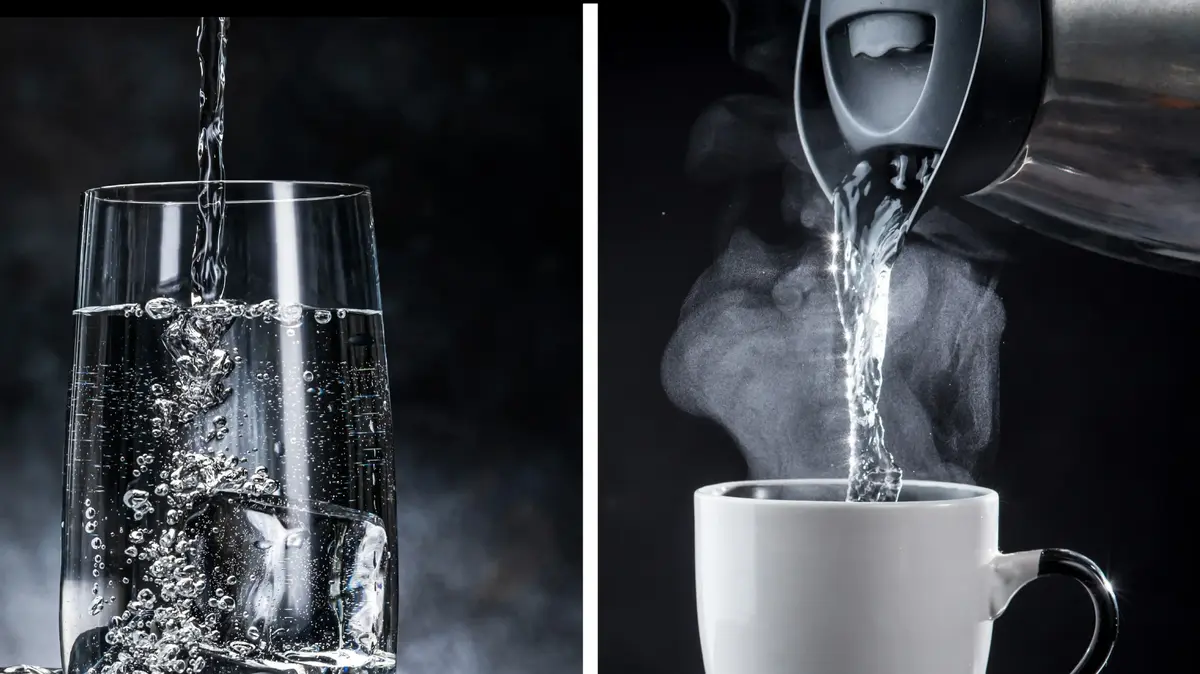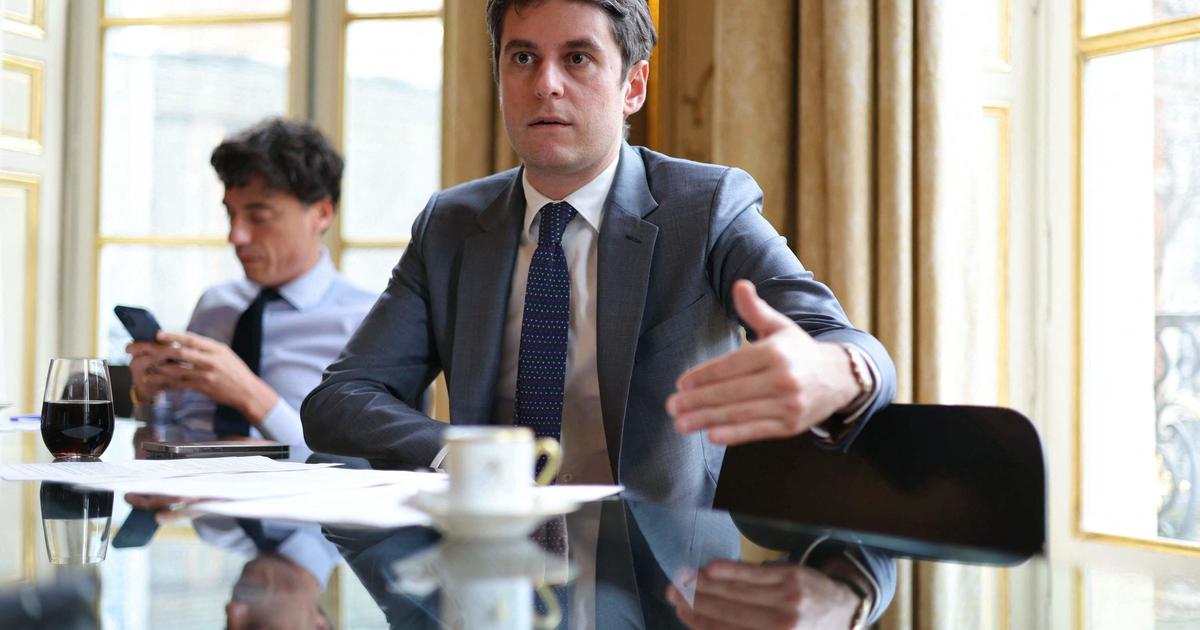Icon: enlarge
The Internet encyclopedia "Wikipedia" has its anniversary on January 15, 2021: It will be 20 years old (symbol picture)
Photo: Robert Schlesinger / picture alliance / dpa
A world without Wikipedia?
Unthinkable for many students.
Everyone knows that who has already seen a tenth grader quickly look up the summary of Goethe's "Faust" in the Internet encyclopedia the day before class.
But can Wikipedia do more?
The author Peter Grünlich, 48, has started an educational experiment.
Grünlich was on a world tour when the corona crisis struck him in the spring.
He traveled back home from Bolivia to Munich.
Before that, however, he had already embarked on a virtual journey, which he continued unhindered and all the more intensely: through the depths of Wikipedia.
Grünlich wrote a book about his experiences: "The Know-It-All: How I tried to read Wikipedia and what I learned from it".
In view of the fear of school closings or corona quarantine, the idea could seem like the solution to all problems to some parents: Instead of struggling with homeschooling again, the children read through Wikipedia.
Der SPIEGEL:
Mr. Grünlich, is your experiment suitable for schoolchildren?
Peter Grünlich:
Wikipedia is more than actually boringly sorted knowledge.
I found it fascinating to see how many exciting little stories there are in this gigantic collection of knowledge.
It's probably not very effective from an educational standpoint to rummage through because it takes forever.
However, it can still be worthwhile for students and, by the way, also for teachers.
DER SPIEGEL:
In your book, you write that reading German Wikipedia alone would take around 4,300 days, i.e. a good eleven years - if you start right away and do without sleep.
How much time did you invest?
Grünlich:
I read through it for a few hours almost every day for a good year.
DER SPIEGEL:
Wikipedia is structured according to topics such as history, religion and sport.
Have you put together a timetable?
Grünlich:
No, I first proceeded alphabetically, but immediately ended up with a difficult term.
Wait, it's so complicated, I'll have to read it again myself.
Here: The first entry is dedicated to a character.
It stands for the voiceless lateral alveolar fricative.
DER SPIEGEL:
What is that?
Greenish:
A voiceless fricative that is formed with the tongue on the alveoli, i.e. on the upper dyke.
Unfortunately, it is only used in Welsh, Kalaallisut, i.e. Greenlandic, Batsish and Navajo.
From this example I quickly noticed that Wikipedia is extremely in-depth, and it was the same as Bertolt Brecht: "Whoever says A doesn't have to say B."
That's why I went to "random articles".
"I came across real 'Wikipediagold'."
Peter Grünlich, author
DER SPIEGEL:
What did you discover?
Grünlich:
I found insanely boring third-place finishers in the "air rifle shooting" discipline at the 1986 Olympic Games or small Polish towns that have a coal-fired power station, which is also their landmark.
But I also came across real "Wikipediagold".
DER SPIEGEL:
You have to explain that.
Grünlich:
I mean articles like the one about the rooster that lived without a head for months.
Or about chicken hypnosis or artificial farters.
One of the most famous art farters in the world was the French Joseph Pujol, who lived at the end of the 19th century.
He had his intestines so under control that he could flatulate the Marseillaise, for example.
He has performed with kings and celebrities.
DER SPIEGEL:
Funny, but doesn't that fall under the heading of "useless knowledge"?
Grünlich:
Not at all.
There is no such thing as useless knowledge.
The information that we consider useless is particularly funny and therefore motivating for learning.
Teachers are constantly faced with the question of how to prepare material for students in order to motivate them.
If you step into the history of the 19th century with Pujol, you are sure to get noticed.
Wikipedia knowledge can definitely increase the joy of learning.
This lexicon is a valuable treasure trove for teachers.
DER SPIEGEL:
With Wikipedia anecdotes, schoolchildren may later be able to participate in quiz shows like "Who Wants to Be a Millionaire?"
score.
But education is more than an accumulation of detailed knowledge.
Have you re-understood the context yourself?
Grünlich: Definitely
.
That applies at least to the areas of psychology and history.
Many articles deal with figures from certain epochs.
This detour gave me a strong picture of historical connections.
Teachers could also use this opportunity for their students.
Nevertheless, Wikipedia is of course not a real educational alternative.
DER SPIEGEL:
In your book you describe high expectations at the beginning: "My hope is that the Wikipedia knowledge that we have collected, all these small pieces of the puzzle, will eventually produce a big picture. That the reader will at least have a different view of everything when he is up crouches on the Wissensberg and looks over the earth like an eagle. "
Grünlich:
At the end of the day, you don't suddenly understand the world and the moment comes when everything makes a lot of sense.
Wikipedia remains a puzzle made of enchanting pieces.
Above all, I learned that learning and collecting knowledge is something wonderful.
That the colors actually become more colorful after reading a little over 50 shades of red.
You can deal with any discipline so clearly and intensely that a universe of knowledge unfolds over and over again, regardless of whether it is about colors or moths.
DER SPIEGEL:
Ideally, students learn that Wikipedia is not a reliable source because, in the end, every volunteer is allowed to write articles here.
How critical were you yourself?
Grünlich:
There are various fake entries and errors that are documented by Wikipedia itself.
I also noticed mistakes.
Studies have shown that other online lexicons also have a certain error rate.
You have to critically question every source.
more on the subject
Corona pandemic: Education ministers want to keep schools open - "top priority"
Corona crisis: How the "new normal" at schools is coming under pressureBy Silke Fokken
Power supply - The Tech Podcast: Can you write an article about yourself on Wikipedia? A podcast by Patrick Beuth
DER SPIEGEL:
According to the title of your book, you are now an "omniscient".
Are you a know-it-all too?
Grünlich:
You tend to be humble.
I know now that I don't know anything to say about Socrates.
Before the experiment I knew - roughly estimated - 0.01 percent of the available knowledge.
Now I know a little more, and I admit that there are constant situations in my everyday life in which I remember a detail that I read on Wikipedia and share.
DER SPIEGEL:
How do you react?
Grünlich:
It shouldn't come across as smart-ass knowledge.
Then people are happy when I make the world a little more colorful with detailed knowledge.
Icon: The mirror








